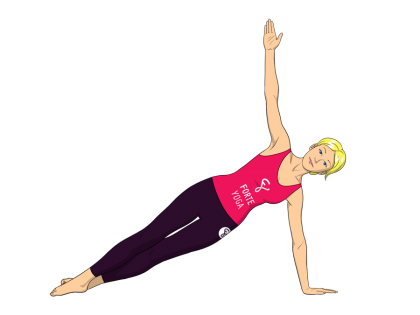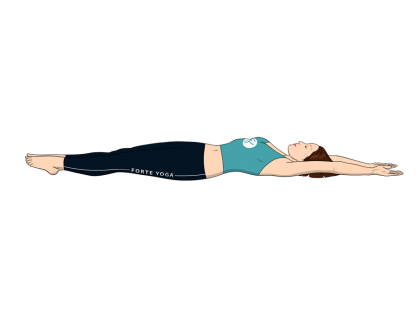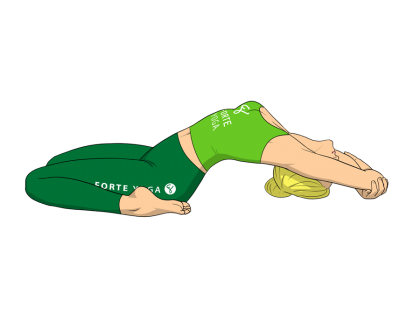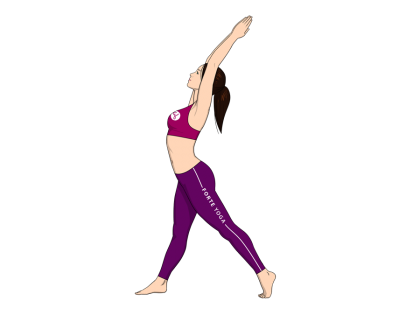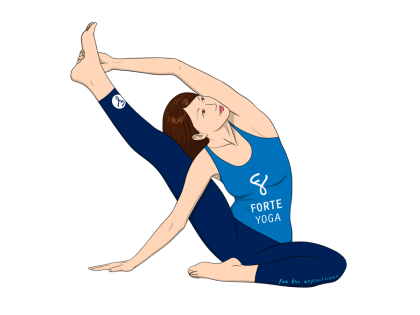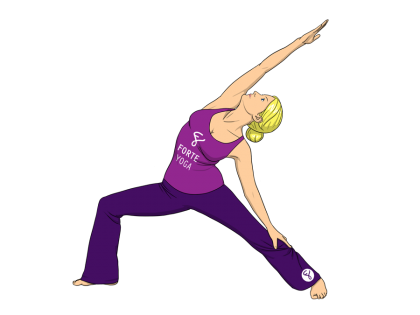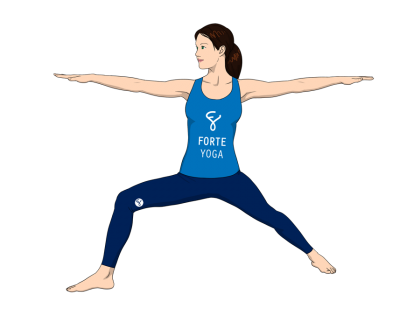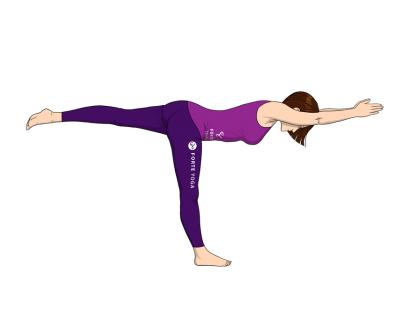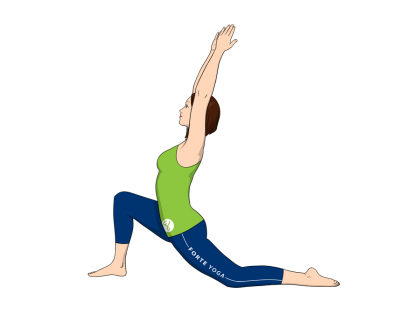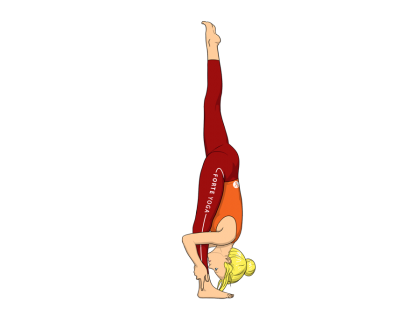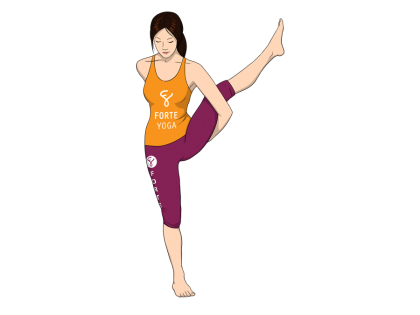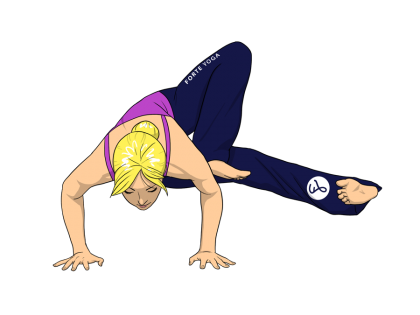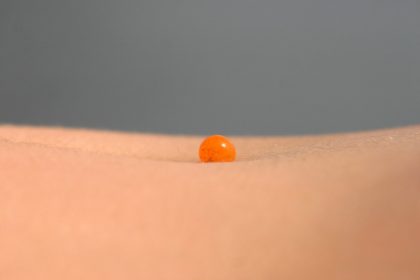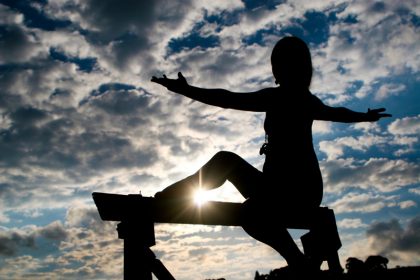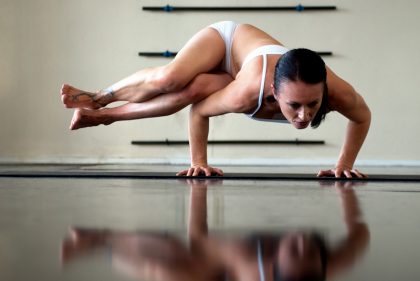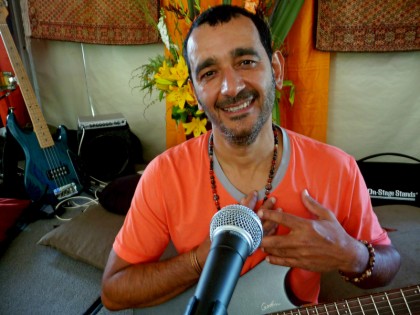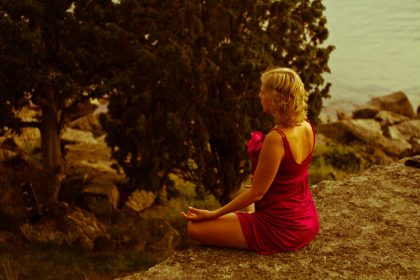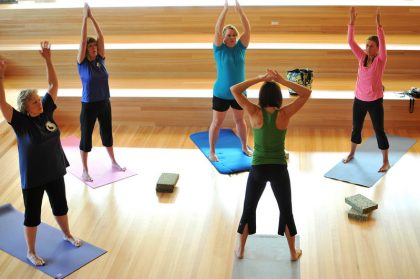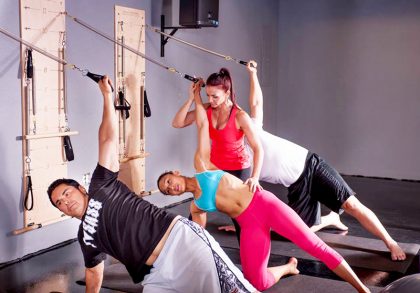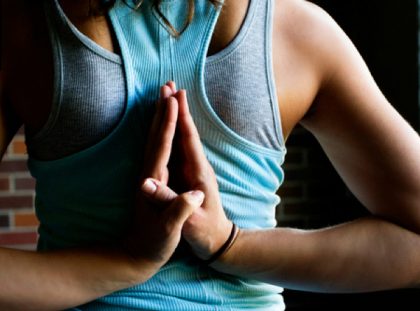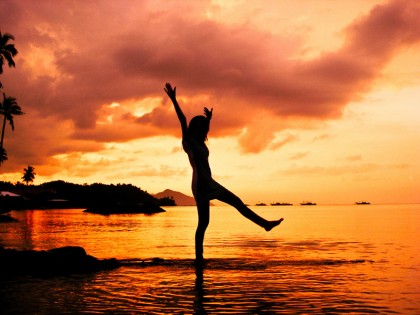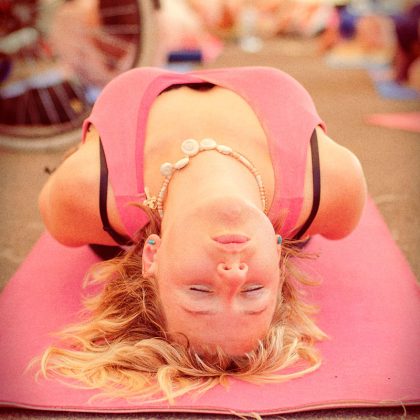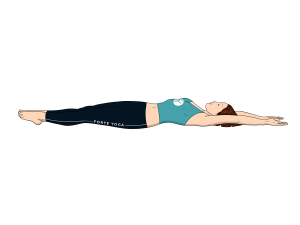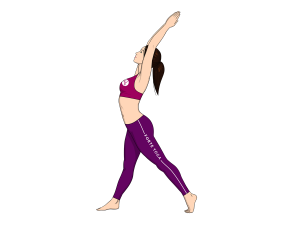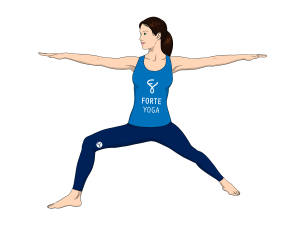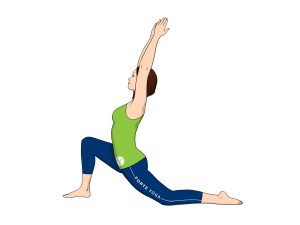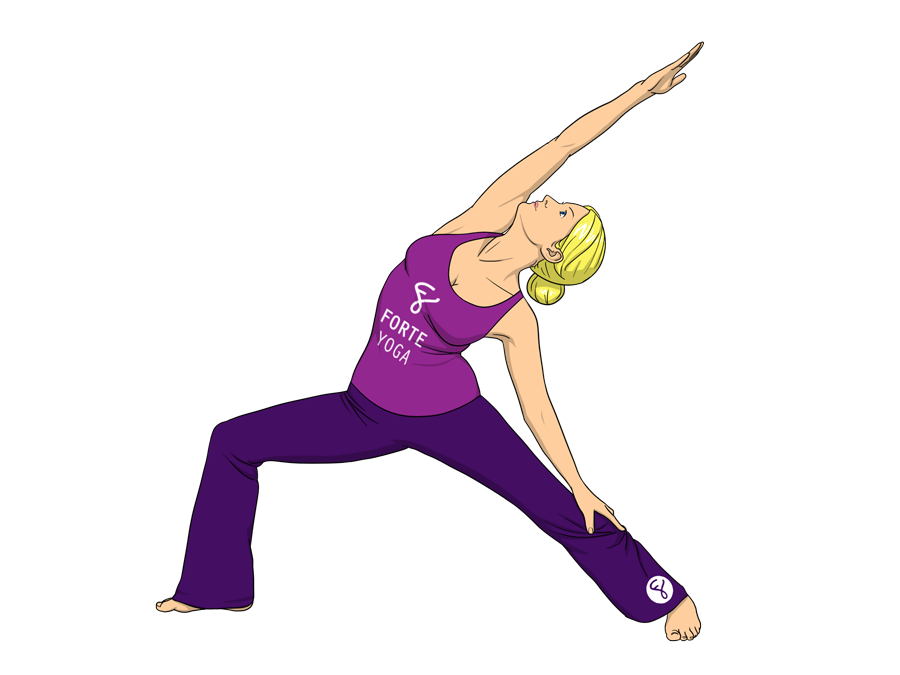
Upward Warrior II Yoga Pose is a standing pose that targets the inner thighs and lats and is ideal for yogis and yoginis at all levels.
 muladhara – the root chakra
muladhara – the root chakra manipura – the wisdom chakra
manipura – the wisdom chakra ajna – the third eye chakra
ajna – the third eye chakra[yoga-sharrre]
- Start in the Mountain Pose (Tadasana). Facing forward, step your left foot back 3-4 feet, or roughly one-leg’s length. Making sure your left and right heels are aligned, turn your left heel to a 45-60 degree angle away from your body. Keep your right foot facing forward, but do not square your hips to the front. Instead, turn your torso left, away from your right leg.
- Raise your arms straight out from your sides and perpendicular to the floor, fingers reaching out and palms down. Your right arm should be parallel with your right leg, so that you are looking straight forward down the length of your right arm.
- Keeping your left heel firmly grounded, exhale while bending your right knee. Bend just enough so that your right knee is positioned directly above your right ankle, shin running perpendicular to the floor. If possible, the length of your thigh should be parallel to the floor.
- From here, inhale and reach your right arm up toward the sky, keeping it straight. Rotate your arm so that the inner arm is coming toward your face, palm facing backward and pushing toward the floor behind you. As you do this, stretch the right side of the torso and lean back, placing the left hand on the outside of the left lower leg. Both arms should be straight with the right arm at an angle, creating a sideways V with the right arm and left leg. Your right side should be facing forward along with the right foot. Without compressing your neck, lean the head back to look up along the length of your inner-arm.
- Continue gazing up your arm and passed your fingers, holding this pose for 30-60 seconds taking controlled, mindful breaths. Inhale as you straighten your knee and straighten the torso, lowering your arms as you exhale. Come back to the Mountain Pose (Tadasana) and repeat all steps with the other leg.
- Breathe deeply through each step.
- Avoid if you have high blood pressure (hypertension) or diarrhea.
- If you have neck pain, do not turn your head to look down your arm but instead look straight ahead.
- This pose is a variation of Warrior II Pose (Virabhadrasana II) and provides a deeper stretch along the leg adductor muscles (inner thighs).
Placing the lower hand on the back of your straight leg helps relieve some pressure from your back; if you feel tension or pain here, do not deepen the stretch on your side as much and lift up at the torso a bit, placing your lower hand on the thigh or hip instead of the lower leg.
If you would like to deepen this asana, try decreasing the distance between your feet or increasing the size of the stride for variations. Decreasing the distance between your feet will also help you keep the back foot flat on the floor, which increases energy and strength in this pose.
All Muscles: Shoulders, lats, groin, quads, inner thighs, hamstrings, calves
Target Muscles: Inner thighs, lats
- Can help relieve backaches, including ones associated with pregnancy.
- Can help relieve symptoms of carpal tunnel, sciatica and osteoporosis.
- Increases stamina and balance.
- Said to help infertility.

